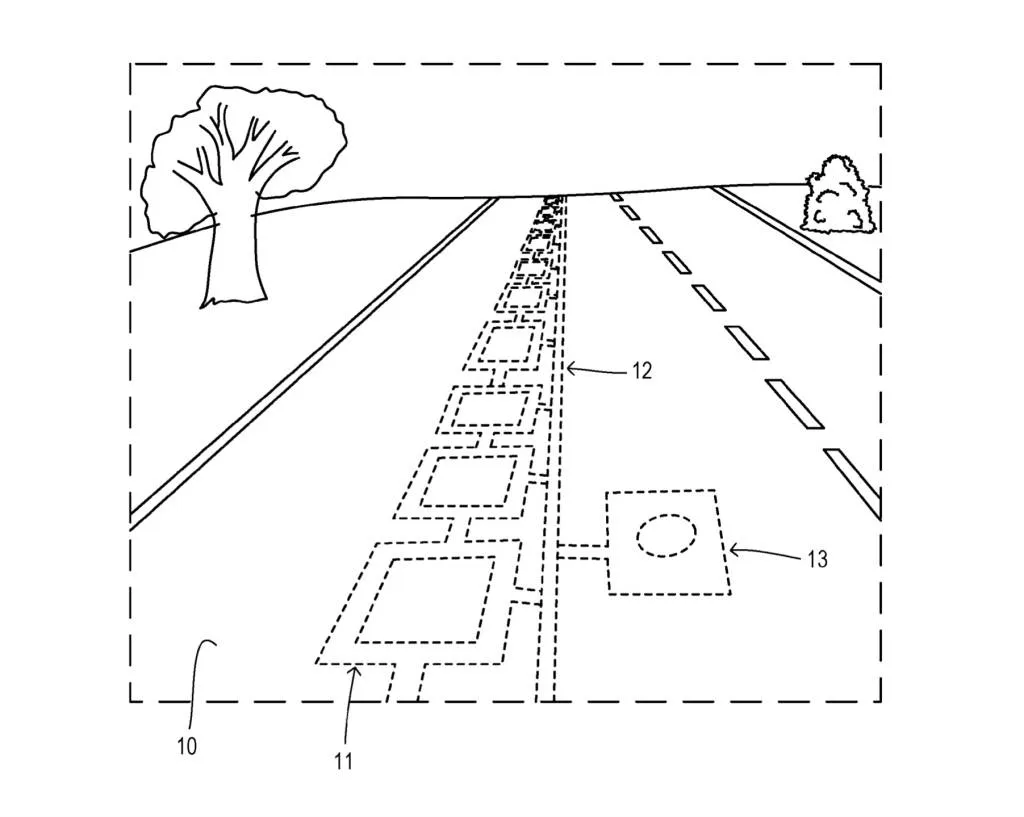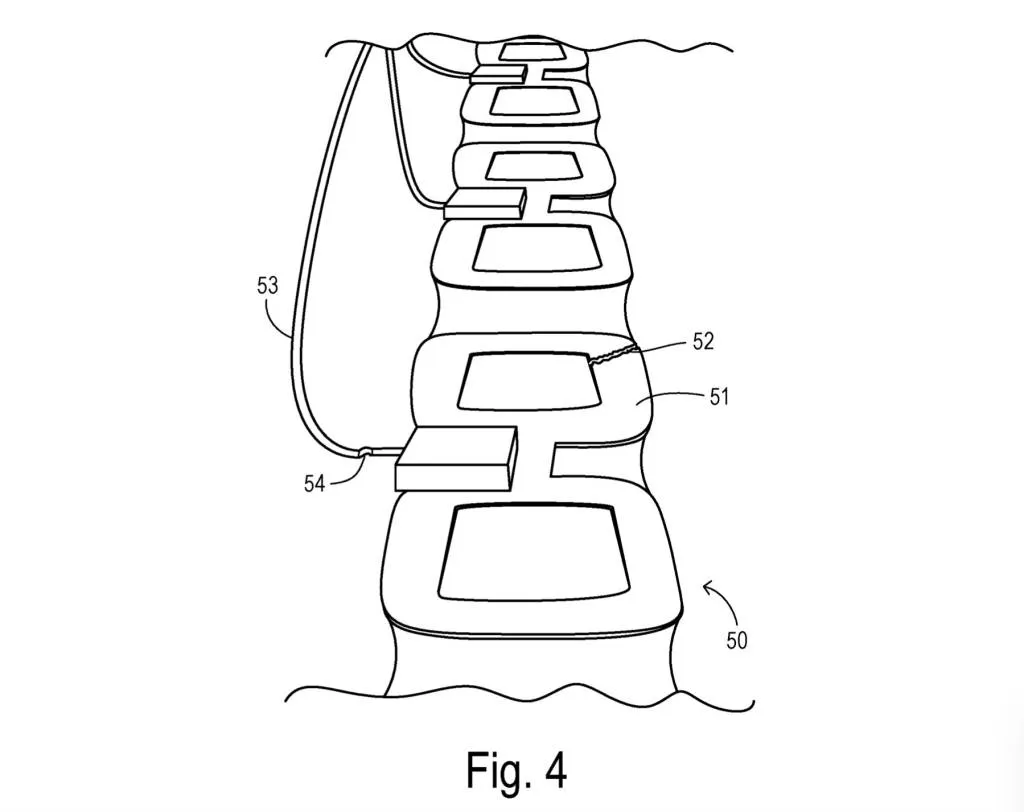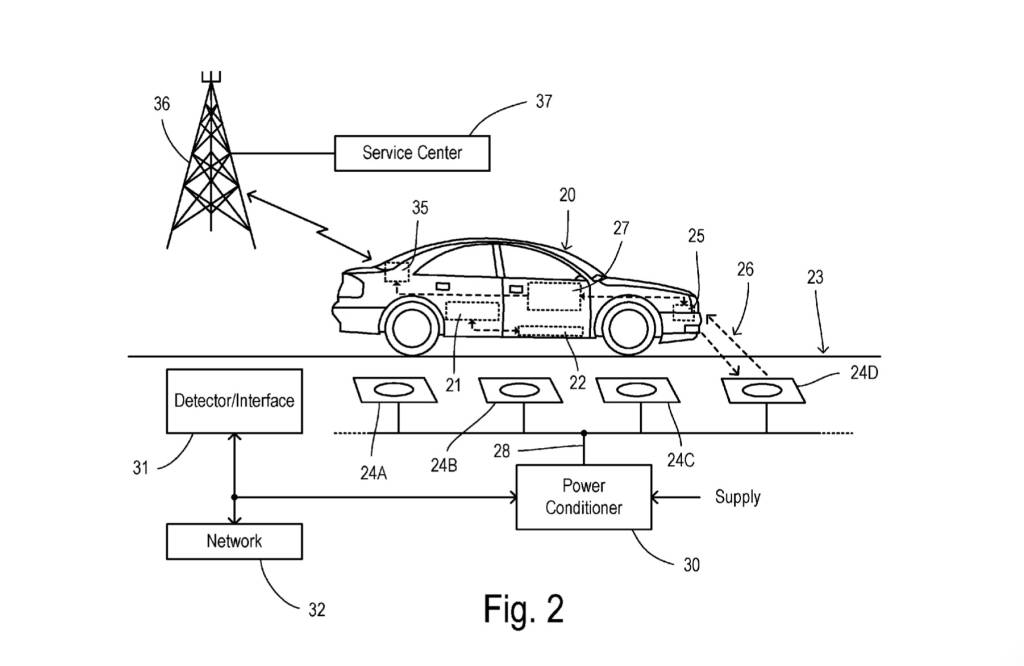Ford patents tech to charge EVs while driven

A recent Ford patent filing hints that the automaker is investigating ways of charging EVs while driving.
Published by the United States Patent and Trademark Office (USPTO) on July 20, 2023, and originally filed Jan. 20, 2022, the patent application in question is titled “Roadway Charging Coil Alignment and Monitoring” and deals with wireless inductive charging for moving vehicles—also known as dynamic wireless charging.

Ford in-road wireless EV charging patent image
While adoption has been slow, wireless/inductive charging systems for stationary use are not new. In 2020, SAE International, formerly the Society of Automotive Engineers, announced the first global standards for EV wireless charging at up to 11 kw. This method of charging uses coils mounted in a transmitter (connected to a source of electricity) which sends power to a receiver mounted on the vehicle.
In this patent filing, though, Ford discusses embedding inductive charging coils in a road surface, allowing vehicles to charge wirelessly as they drive along. To do this, a vehicle’s receiver would be aligned with a line of coils, which would require the driver to follow a precise path, potentially aided by cameras or other sensors.

Ford in-road wireless EV charging patent image
Relying on steering action still leaves room for misalignment of the car and in-road charging coils, which reduces charging efficiency, according to Ford. The automaker’s proposed solution is to equip vehicles with ground penetrating radar to home in on the coils. Radar data would then be fed into a control system that would automatically adjust steering to precisely align the in-road coils with the vehicle’s receiver.

Ford in-road wireless EV charging patent image
A patent application is not proof of real-world plans, but in-motion wireless charging has been tested before. In 2017, Renault and Qualcomm (which subsequently sold its wireless charging patents to WiTricity) claimed to have charged a car at 60 mph on a test track. In 2020, wireless-charging hardware from Israeli firm Electreon was used to charge moving trucks on a short stretch of Swedish road. Toyota believes dynamic wireless charging could even enable smaller batteries in future EVs.